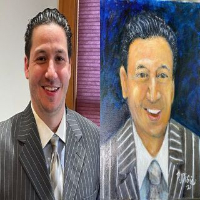Transfer Wills & Probate Lawyer, Pennsylvania
Sponsored Law Firm
-
 x
x

Click For More Info:
-
Levine Law, LLC
22 E Grant St New Castle, PA 16101» view mapEstate and Real Estate Law 3rd Generation Law Firm
Levine Law aims to create the most direct, simple, and common sense approach to achieve the client's desired end result.
800-711-7881
Includes: Estate Administration, Living Wills, Wills
Brian Frederick Levine
✓ VERIFIEDWills & Probate, Estate Administration, Real Estate, Accident & Injury, Entertainment
Owner of Levine Law, Mr. Levine founded the law firm in 2007 after undertaking judicial clerkships with trial court judges from the Lawrence County Co... (more)
Michael A. Joanow
Construction, Health Care, Wills & Probate, Bad Faith Insurance, Products Liability
Status: In Good Standing Licensed: 36 Years
Tye J Cressman
Elder Law, Estate Planning, Wills & Probate, Trusts
Status: In Good Standing Licensed: 16 Years
 Brian Levine New Castle, PA
Brian Levine New Castle, PA Practice AreasExpertise
Practice AreasExpertise

